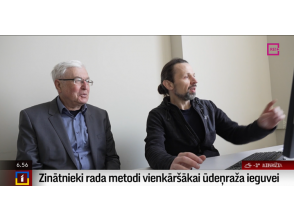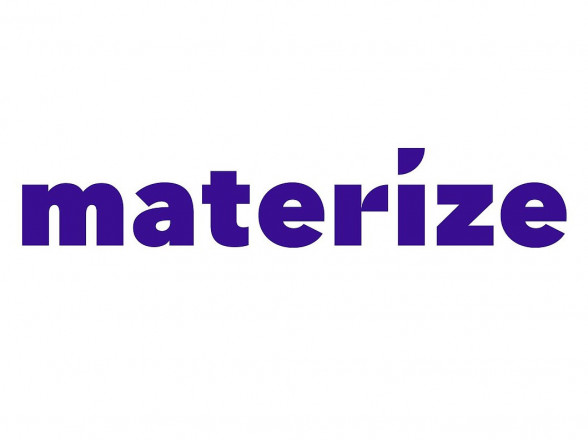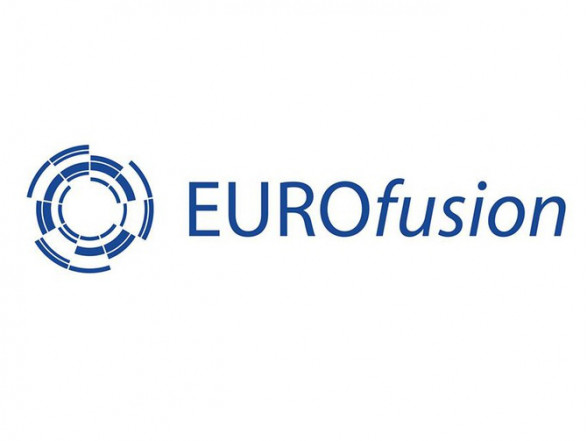In the quest for sustainable and efficient energy production, a team of scientists from the ISSP UL has achieved a breakthrough. Using cutting-edge computer modelling, these scientists have pioneered a method for hydrogen production, marking it as one of the most significant scientific achievements of 2023 in Latvia. The National Television (Latvijas Televīzija – LTV) visited researchers at the ISSP UL and filmed a story for the program “Rīta Panorāma” (Morning Panorama).
The urgency of finding clean energy alternatives cannot be overstated, with global warming looming as one of the century’s most pressing issues. Fossil fuels, responsible for over 80% of current energy consumption, have led to a staggering 36 gigatons of CO2 emissions per year, wreaking havoc on the environment and human health since the industrial revolution.
Enter Eugene Kotomin and Guntars Zvejnieks, the brilliant minds behind this research. Their focus on hydrogen as a primary energy carrier stems from its abundance and high energy density, making it a promising candidate for a cleaner energy future. The team’s innovation lies in the use of perovskite nanoparticles, specifically tailored through large-scale computer modeling.
While previous studies explored metal oxide-based materials like TiO2 and MoO3, the ISSP UL scientists honed in on SrTiO3 perovskites due to their stability, resistance to photocorrosion, and tunable structure. Overcoming wide band gaps and electron-hole recombination challenges, the team strategically incorporated N and Al impurities into the perovskite nanoparticles.
The research findings were not confined to theoretical predictions but were validated through an international collaboration. Partners from the M-ERA-NET project in Slovenia grew nanoparticles, confirming the increased hydrogen production demonstrated at the National University of Taiwan. The collaborative efforts led to developing highly effective nanomaterials with immense industrial potential.
Published in prestigious Open Access international journals, the results of this research were achieved within the frameworks of three European projects: the FLAG-ERA JTC project To2Dox, the EC COST Action OC-2018-2-23544, and the M-ERA-NET project SunToChem. Recognizing the impact of this work, the Latvian Academy of Sciences awarded the ISSP UL scientists as one of the winners in the competition for the most significant scientific achievements of 2023 in Latvia.
As the world grapples with the consequences of excessive carbon emissions, the ISSP UL scientists’ innovative hydrogen production approach offers hope for a sustainable and cleaner energy future. Their research not only showcases the power of collaboration but also emphasizes the vital role of computational materials science in driving transformative change on a global scale.



